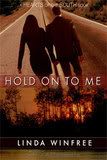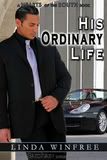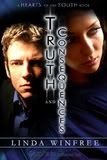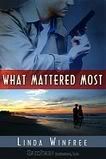Pitching
 As nationals creep up on us, I notice quite a few courses available on pitching.
As nationals creep up on us, I notice quite a few courses available on pitching.I've never been to nationals (will go next year for sure since it's in a city I've known well all my life and is close to my parents) but a big part of the conference is the opportunity to pitch to agents and editors.
I've never pitched to an agent or editor, either. And, I hope I never have to--in real life, anyway. I can do just about anything on paper, but sit me down face-to-face and I may as well have had my tongue cut out.
But I think I've got a couple of ideas that might help hone that fine elevator pitch to start off an agent/editor appointment, a one-liner that catches interest and lays the foundation for the rest of your pitch.
First idea:
I recently took a course on High Concept offered by Calgary RWA, something I believe you need in your pitch to catch the attention of a publishing industry professional. The instructor, Lori Wilde, has been published by three different houses--Warner, HQN and St. Martin's.
High concept is one of those elusive ideas that hangs back in the shadows and dodges the light. But Lori did a fantastic job of outlining the elements that make up high concept and then breaking them down into digestible, understandable, applicable terms. I recommend taking the class when you get the opportunity.
Today, I wanted to touch on the idea that, while honing your pitch for nationals, consider tweaking it to include high concept. HC, after all, is designed to enable you to deliver your ideas to an agent or editor succinctly, clearly, powerfully.
Lori said:
There are five central components to the high concept:
1) It's different.
2) It's universal.
3) It has instant emotional appeal.
4) You can immediately visualize the entire story.
5) It can be stated in one sentence.
As I mentioned, Lori breaks these down and gives lots of examples in her class, but I found the list itself immensely helpful. I hope you do too.
Second idea:
This was a suggestion given by Randy Ingermanson, author of The Snowflake Method of Plotting. He said that to get an idea of how to write a one-line summary of your book, habitually visit the NYT bestseller list and read theirs. It's a fantastic idea, kind of like learning to write book jacket blurbs by reading other book jackets. So simple it's easy to overlook.
So, here are some examples from Lori's HC class:
- A cocky cop must find a way to save people stranded on a city bus that will explode if is slows below 55 mph. —Speed
- Videotape kills anyone who watches it within a week. —The Ring
- Embattled husband-and-wife assassins wind up hunting each other. —Mr.and Mrs. Smith
And here are some examples from the NTY bestsellers list this week:
- A man whose wife has been kidnapped has 60 hours to come up with a huge ransom. --THE HUSBAND, by Dean Koontz
- A doctor’s decision to secretly send his newborn daughter, who has Down syndrome, to an institution haunts everyone involved. -- THE MEMORY KEEPER’S DAUGHTER, by Kim Edwards
- Detective Lindsay Boxer and the Women’s Murder Club investigate unexplained deaths at a San Francisco hospital. -- THE 5TH HORSEMAN, by James Patterson and Maxine Paetro
- A woman returns to her hometown and re-examines the troubling events of her past. -- SUSANNAH’S GARDEN, by Debbie Macomber
- An Afghan-American returns to Kabul to learn how a childhood friend has fared under the Taliban. -- THE KITE RUNNER, by Khaled Hosseini
- A young widow fights back when intruders storm her bed-and-breakfast in rural Idaho. -- COVER OF NIGHT, by Linda Howard
- A political operative investigates the murder of a former senator. -- DEAD WATCH, by John Sandford
If you study HC, you start to see which threads to pull out to attract agents and editors. If you read enough of these, you start to see how your stories fall into the template.
Share some of your tips on creating one-line summaries of your novels, and share examples with us. I'll work on mine and post them in the comments later.Labels: Joan's posts







4Comments:
GREAT post, J.
I don't know why the HC one-liner is so hard for me, but it is.
Okay, I'll give it a shot with my last book.
Female Indiana Jones searches for three ancient relics that could change her life.
Whew. That was hard. I'm so glad I'm not pitching (formally) this year!
Nice job, E! It IS hard! That's why I keep taking classes. :-)
ROFLMAO, J. It sucks, but at least I don't have to pitch that book. ;)
And I'm still waiting for your examples, Missy.
Great job, Eli!
These are really tough to do. I have to do them for 2 of my publishers, so here are some of mine. Don't laugh. *g*
(Whose Afterlife Is This Anyway?)
When her sister’s soon-to-be ex-husband turns up missing, librarian (and wannabe P.I.) Carrie Holiday is on the case.
(Reality Check)
Rachel Storm is a woman who has it had planned for his life, but once he met single mother Lucy he knew he had to change his plans.
(Damage Control)
Whoever said a man and woman couldn’t be ‘just friends’ had no idea what he was talking about, or at least that’s what Brian Storm had always thought, until one weekend changed his thinking.
(Divine Intervention)
When an accident wipes away all of
Larissa’s memories of their marriage, Drew must find a way to win her back or risk losing her forever.
Post a Comment
<< Home